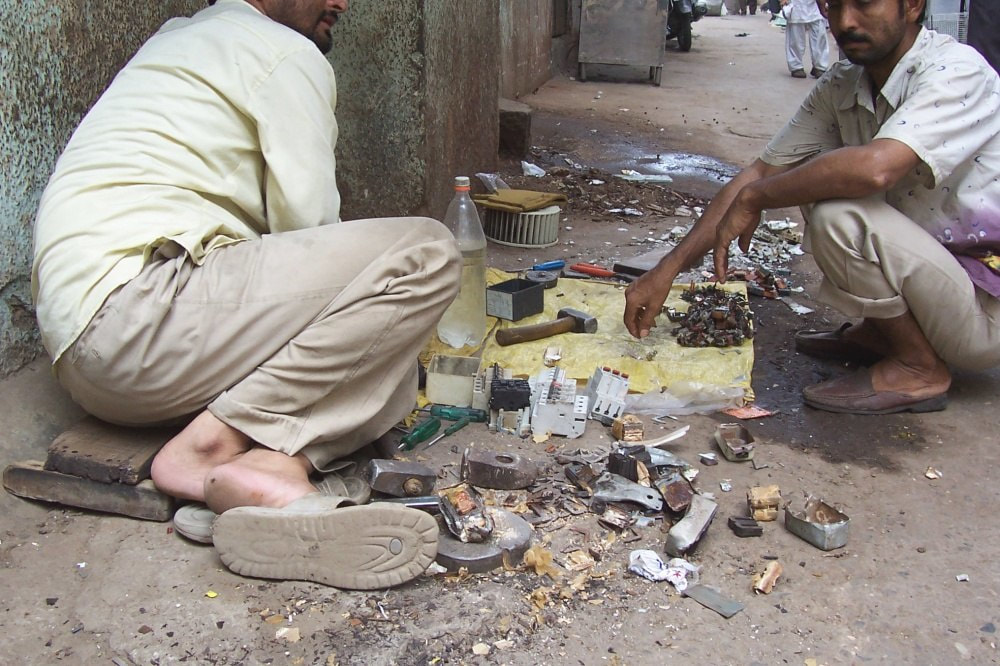
On Black Friday, the U.S. released its "Fourth National Climate Assessment," a report that warns that climate change is having impacts on communities, the economy, interconnected issues (e.g., population, land-use), water, health, indigenous peoples, ecosystems & ecosystem services, agriculture, infrastructure, oceans & coasts, and tourism & recreation. Anybody who's been alive in the U.S. during hurricanes Mitch (19,325 deaths), Jeanne (3,035 deaths), Katrina (1,833 deaths), Sandy (285 deaths), and Maria (3,057 deaths) already know climate change has had horrifying impacts in the last 20 years.
The report also suggests actions: "Transformations in the energy sector—including the displacement of coal by natural gas and increased deployment of renewable energy—along with policy actions at the national, regional, state, and local levels are reducing greenhouse gas emissions in the United States. While these adaptation and mitigation measures can help reduce damages in a number of sectors, this assessment shows that more immediate and substantial global greenhouse gas emissions reductions, as well as regional adaptation efforts, would be needed to avoid the most severe consequences in the long term." Most of these changes are going to require a more ecologically literate citizenry. Ecological yahoos (to use David Orr's phrase) cannot solve the problem. Eco-literacy can begin with music education, especially since our hands aren't tied behind our backs by Pearson as much other school teachers, and because the musics we use often have wonderful openings for conversations about ecological issues. We are freer, so we can do this work.
A blog for the Union of Concerned Scientists suggest 5 "takeaways" from the report.
"1. The farm and food system as we know it is transforming before our eyes, and the productivity we’ve benefited from is in jeopardy.
2. Extreme events are devastating farms and ranches, and rapidly getting worse.
3. Climate change is contributing to deteriorating soil and water quality, entrenching challenges that have ripple effects felt far beyond farms.
4. In farming communities across the country, lives and livelihoods are on the line, with some populations suffering disproportionate risk.
5. The number of people who go hungry each day will climb–in the US, and abroad."
For some these are difficult facts to digest, especially if you've had your head in the sand. For others, these are so obvious we forget to repeat them. Ecological issues are at the core of any social justice action, because we cannot accomplish any social justice without also solving these ecological challenges. And there's no doubt that Black Friday was chosen for release of this new report to hide it from the general public. Our greatest challenges are often hidden from us (before the end of WWII, Stalin's atrocities were hidden from the American public because he was our "friend" against fascism). But there is a sort of appropriateness in announcing this report now, since Black Friday is a horrible catastrophe we perpetrate against Mother Earth, as National Geographic points out. But we can help in making greener choices: such as in how we buy (shipping vs. buying local products), buying fewer electronics and plastics since e-waste continues to be one of our greatest ecological challenges. National Geographic also recommends buying carbon-offsets for your Black Friday and cyber-Monday splurges.
Though music education purchases aren't often made on Black Friday or cyber-Monday, what we purchase can also exacerbate the climate crisis or not. When we choose to support more local manufacturing of instruments, and choose to analyze carbon-miles of our purchases (how many miles does it take for a product to be shipped to us; how many miles did it take to get from its factories to its distribution center). This is part of what I call a "fundamental re-localization--reorientation to place, people, and local histories" in music education. Our professional material choices may be a small step in re-localizating, but they can be a start in our battle against the climate crisis.
DJS
References
Image: By The original uploader was Thousandways at German Wikipedia. (Original text: Matthias Feilhauer (Benutzer: thousandways)) - Self-photographed, CC BY-SA 2.0 de, https://commons.wikimedia.org/w/index.php?curid=3490136
Link: https://nca2018.globalchange.gov/
Link:https://blog.ucsusa.org/marcia-delonge/five-takeaways-from-the-fourth-national-climate-assessment-and-what-they-mean-for-food-and-farms
Link: https://www.nationalgeographic.com/environment/2018/11/how-black-friday-cyber-monday-impacts-environment/
Link: https://www.routledge.com/Eco-Literate-Music-Pedagogy/Shevock/p/book/9780415792578
 RSS Feed
RSS Feed
